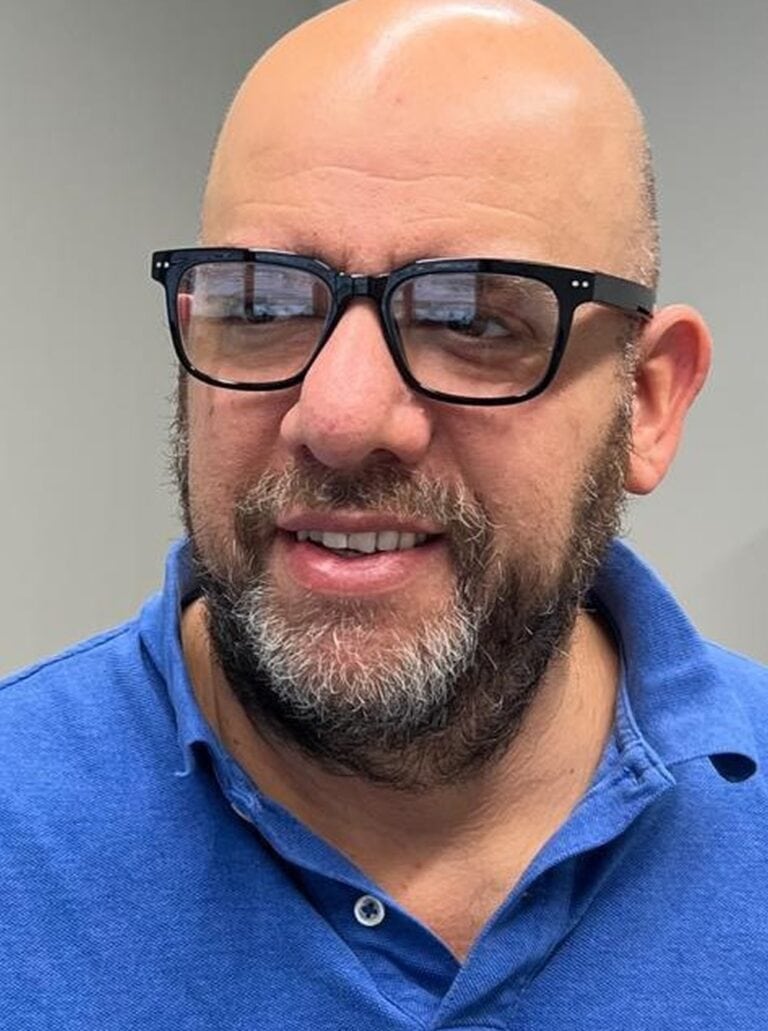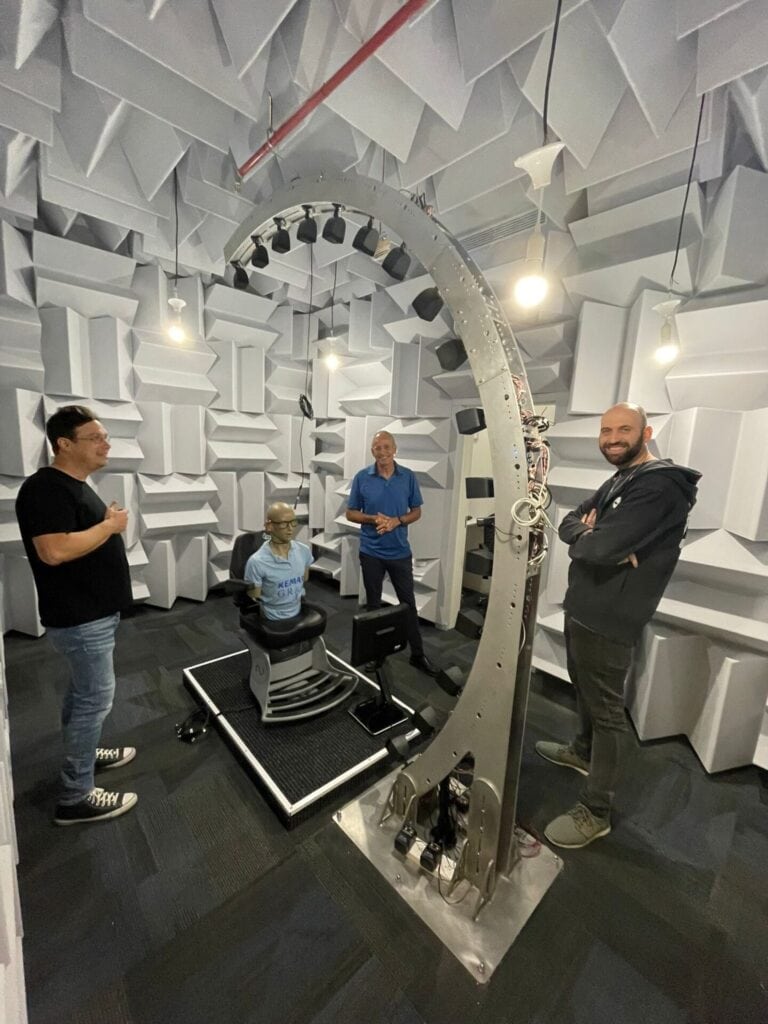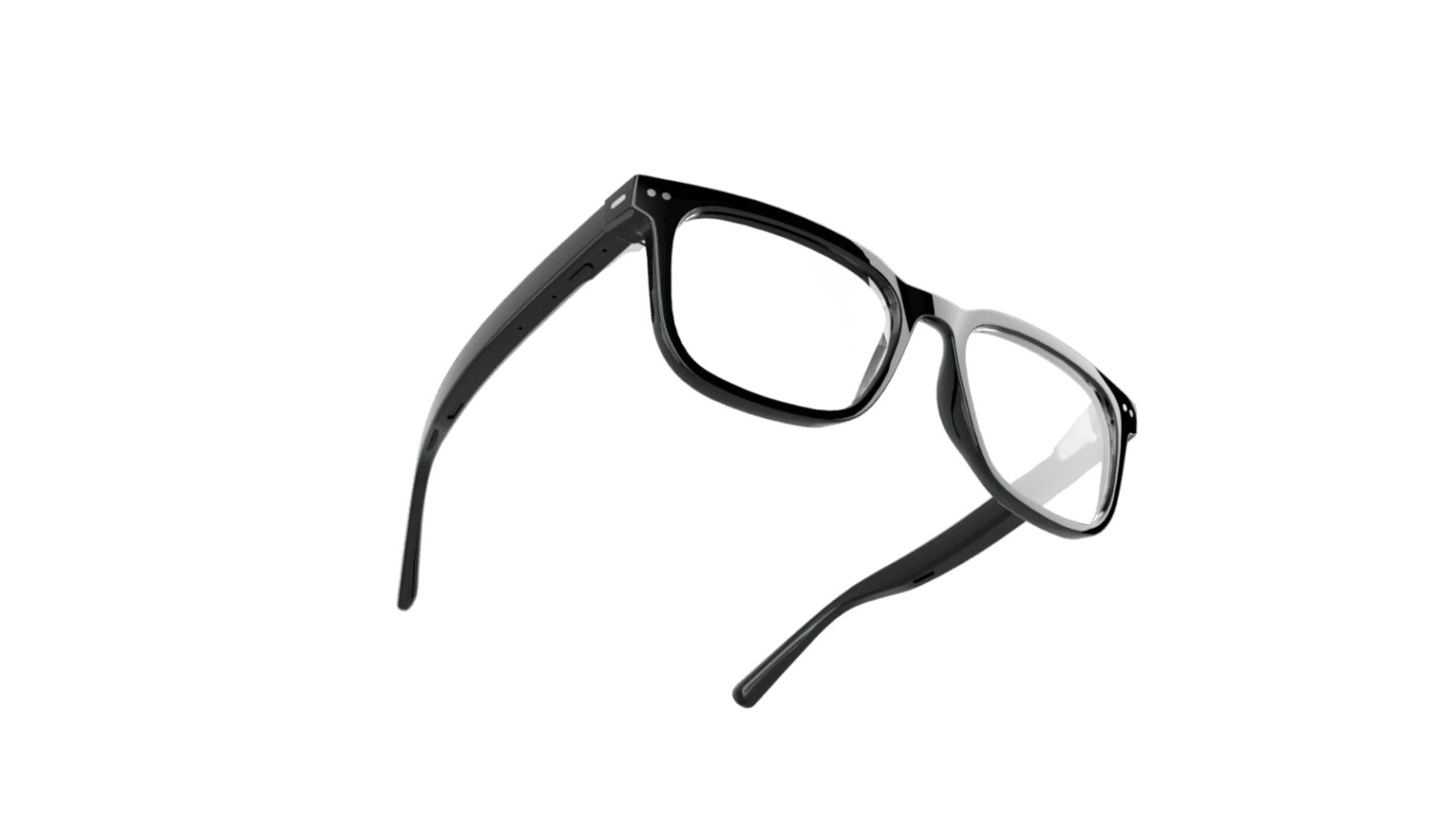Most of the billions of people who need prescription glasses consider them a fashion accessory rather than a medical device.
The same cannot be said for the billions of people who need hearing aids.
Among American adults aged 70 and older with hearing loss who could benefit from hearing aids, fewer than one in three has ever used them. And only 16% of adults aged 20 to 69 who could benefit from wearing hearing aids have ever used them, according to statistics from the National Institute on Deafness and Other Communication Disorders.
“Most of the people who need a hearing aid don’t buy them because of price, stigma or convenience,” says Ori Goren, CEO of the Israeli startup Nuance Hearing, which will introduce its hearing-aid-inside-eyeglasses prototype in January at CES in Las Vegas.
“There’s also a known phenomenon in the hearing-aid industry called ‘in the drawer,’ meaning people buy the hearing aids but don’t use them,” adds Goren.

Nuance Hearing aims to make hearing aids an invisible component of fashionable, convenient and economical eyeglasses.
Microphones and a speaker are embedded invisibly into the temples of the frames. Patented algorithms cancel the feedback effect and reduce the self-heard volume of the speaker’s own voice. The volume and other settings of the rechargeable glasses are controlled by a smartphone app.
“It’s a totally stigma-free hearing aid that looks like normal eyewear,” says Goren.
Rechargeable hearing-aid glasses
“Normal” will be defined by the standard-setter in the business.
Nuance was fully acquired earlier this year by EssilorLuxottica, the world’s top company in the design, manufacture and distribution of lens technology (France-based Essilor) and eyewear (Italy-based Luxottica).
Luxottica, largely responsible for transitioning eyeglasses into fashion statements with brands such as Ray-Ban and Oakley, merged with Essilor seven years ago.
Now, the $80 billion mega company has integrated Nuance fully into its new Super Audio division led by Stefano Genco, a former senior executive in Amplifon, the largest retailer of hearing aids worldwide. The brand name for products from this division will be Nuance Audio.
EssilorLuxottica Chairman and CEO Francesco Milleri and Deputy CEO Paul du Saillant released a statement in July explaining: “While sight remains our core business – and growing the optical market our strategy – we are uniquely positioned to open up a new avenue for the industry by addressing the need for good hearing with innovative technologies.”
Goren says the Super Audio team offers “everything a tech company can dream of when dreaming of a new product.”
“I’ve developed products for more than 20 years, and I’ve never been more excited about a product,” says Goren as he shows ISRAEL21c around Nuance’s Tel Aviv offices.
“The hearing experience of the eyewear is superior compared to hearing aids. They provide much better speech intelligibility in noisy conditions, even though the ears are completely open.”

An idea before its time
The idea of combining eyeglasses and hearing aids dates back to the Sixties, but the technology didn’t yet exist to make a viable product.
Even a decade ago, when iconic Israeli serial entrepreneur Zohar Zisapel bought the latest iteration of glasses with microphones in the frames, he was extremely disappointed.
Zisapel figured that Israelis could do this better. In January 2015, he cofounded Nuance Hearing with CTO Yoni Hertzberg, a medical device designer with a PhD in physics as well as an MBA.
Zisapel and his older brother, Yehuda, his partner in the RAD Group of voice and data communications technology companies, bankrolled Nuance until its acquisition, which became formal shortly after Zohar passed away.
The complex of high-rise office buildings in which Nuance is headquartered stands as a testament to the Zisapel brothers, whom Goren calls “two of the most incredible entrepreneurs in our history.” Dozens of companies that got their start at RAD occupy these edifices in northern Tel Aviv.
But success is never guaranteed, even with a Zisapel behind the venture.
The original Nuance design had ear tips attached to the microphone-embedded eyeglass frame. Although the prototype “achieved a remarkable directivity of sound with fast processing,” says Goren, the market didn’t want a wearable that still carried the stigma of hearing aids.
So the company pivoted in 2018 and created a table mic with eight selectively directional microphones. It can be paired with wired earphones, wireless earbuds or hearing aids. Starkey, the No. 1 US hearing-aid manufacturer, sells it as an aftermarket accessory for people with hearing loss to use in noisy environments, or for students with ADHD to filter out auditory distractions in the classroom.
The holy grail
But Nuance didn’t give up on the holy grail of putting hearing aids in glasses frames.
“In 2019, we saw Bose, Amazon and Samsung introducing eyewear that performs as a Bluetooth speaker for phone calls and music,” says Goren.
“That inspired us to take another shot at designing microphone-embedded eyeglass frames with open speakers and no ear tips.”
The team was assisted by Arnaud Rodrigue and Dr. Laurent Choppe from the life sciences department of Tel Aviv-based Cukierman & Co. investment house, which specializes in cross-border mergers and acquisitions and capital raising. Cukierman introduced Nuance to EssilorLuxottica and shepherded the deal through to acquisition.
“Nuance Hearing’s acoustic beamforming technology shows world-class performance in directional capabilities and audio focus,” says Choppe. “In the field of ‘real-time’ applications, this is the most effective technology in the world for dealing with background noise and voice distractions.”
Launching in Q4 2024
Nuance is getting the product ready for launch commercially in the fourth quarter of 2024.
The company’s team of 25 employees, soon growing to 35, includes audiologists, software, app and algorithm developers, and industrial designers.
The product, including prescription lenses, is expected to be priced competitively with hearing aids, which cost up to $6,000 and aren’t covered under public US insurance plans.
“It will be introduced in the United States under a relatively new category of over-the-counter hearing aids that you can buy off the shelf and don’t require an audiologist,” explains Goren. “For Europe, we will certify it as a full-fledged hearing aid.”
Some of EssilorLuxottica’s 18,000 eyewear stores in 150 countries already sell hearing aids.
“We see this synergy more and more, and it makes sense because there’s a strong correlation between the populations buying glasses and hearing aids,” says Goren.
Bomb shelter
Because Tel Aviv is in rocket range of Gaza, the acoustics lab doubles as Nuance’s safe room where the staff can shelter in case of an air-raid siren.
“It may be the only acoustic lab in the world where you have a stock of mineral water and cornflakes,” Goren says wryly.
While only one employee is currently serving in the reserves — algorithm developer Gal Shemesh — all are affected by the war.
After the Hamas attacks on October 7, EssilorLuxottica offered to pay for airfare and lodging for those seeking to escape to Milan. The parent company also offered to pay for the construction of safe rooms in the homes of employees who lack one.
“That didn’t happen, but just their saying it made us feel somebody cares and has our back. That was a moment of truth for us,” says Goren.
He notes that EssilorLuxottica had previously acquired another Israeli company, Shamir Optics, located on Kibbutz Shamir near the Lebanese border. Many of Shamir’s 600 workers had to be evacuated; one is working from Nuance’s office.
“They are working under very difficult conditions and our minds and hearts are with them,” Goren says. “Shamir and Nuance is now one family. Shamir supports Nuance at many levels and in a tragic way, the war made us even closer.”
For more information, click here.

















